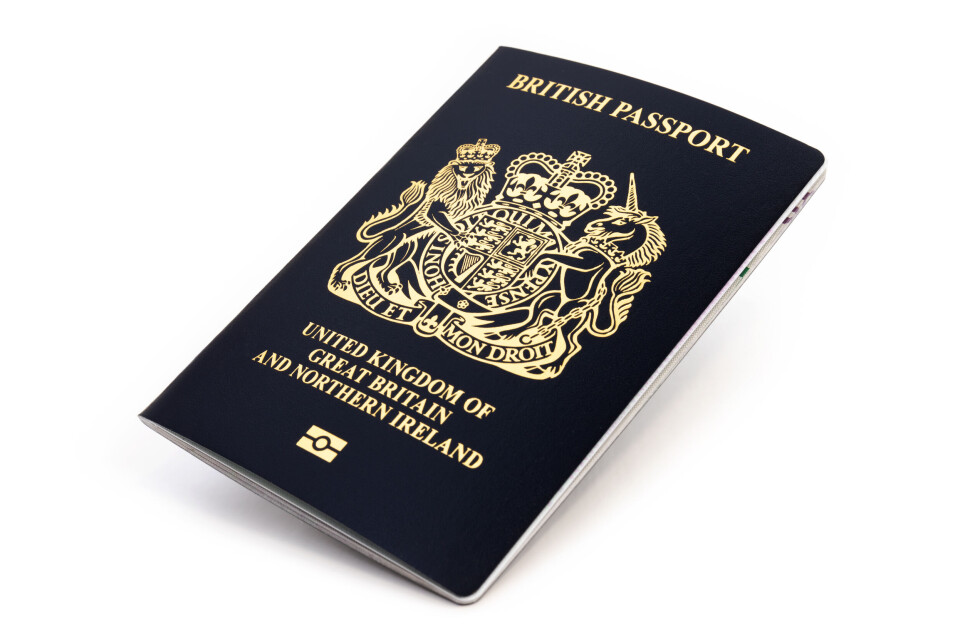-
Flights to and from France not expected to be affected by Gatwick Easter strike
Travellers are still advised to check their flight details this weekend
-
Residents ordered to stay home due to high risk of avalanche in French Alps
One person has been injured in an avalanche in Val Thorens, while thousands of homes are without power
-
People in France snubbing US travel, report travel agents
The political context, weak euro against the dollar, and border issues have all been blamed
Brexit: British passports and 10-year rule for visits to EU countries
The UK press has highlighted the case of a woman refused boarding onto a flight to Majorca due to her passport being within its marked expiry date but issued more than 10 years ago. We explain the rules

One of the changes for British visitors to France since the end of the Brexit transition period relates to passport validity.
This applies for visits for British passport holders spending time in France, or any other part of the Schengen area.
The change derives from the Schengen Borders Code rules for non-EU citizens.
What is the rule?
Passports of non-EU visitors to the Schengen area must:
- Have been issued less than 10 years ago when you enter the area
- Be valid (bearing in mind the previous rule) for at least three months from the date of intended departure from the area.
In summary, the passport should have an issue date no more than nine years and nine months ago at the time when you enter the area.
If you do not have a return ticket as proof of when you are returning it is advisable, in case of questions from border police, for it to have been issued no more than nine years and six months ago on entry to the area. This is because British visitors are allowed to stay up to 90 days (three months) in the Schengen area and there must still be three months’ validity (under the EU definition) remaining on the date of return.
What is the recent boarding problem?
The Telegraph has reported on the case of a woman denied boarding to Majorca from the UK, calling the rule a “strange quirk in the Brexit agreement.”
It added that “it is not clear whether this quirk represents an active negotiating failure by the government, or whether the implications of each sides’ rules and practices were simply missed or underestimated”.
The problem stems notably from the fact that the UK passport authority used to add extra time on to passports should people renew early - this was allowed up to nine months in advance. The passports were renewed until an expiry date 10 years from the previous expiry date, but if you renewed early then the time between renewal and the old expiry date was added on to the validity of the new passport under UK rules.
It was therefore possible to obtain a new passport with up to 10 years and nine months to run on it before the printed expiry date.
Pre-Brexit this did not cause issues because EU citizens have free movement into other EU countries and were not subject to Schengen entry rules for non-EU citizens. The only rule applicable was that a visitor’s passport should not have passed its printed expiry date at the time of exit and entry to the UK.
The UK stopped the practice of adding extra time to passports in 2018, in anticipation of Brexit, but holders of older passports need to be aware of the problem. New passports are issued with an expiry date 10 years maximum from the issue date.
If they do not take care, however, Britons seeking to enter France, or other Schengen area countries from the UK, may find they are turned back at the border in future if their passports fail to meet the rules.
Why is this rule in force?
This is part of EU law relating to creating uniform rules for non-EU visitors coming into the Schengen area.
Similarly to the rule on staying no more than 90 days in any 180 days, or that fact that British visitors will face new entry checks from next year, it is not unique to the UK and does not derive from anything specific in the Brexit agreements; it is the usual rule applied to non-EU citizen visitors.
Also similarly to those other issues, it is unclear if it would have been legally possible to negotiate a special opt-out for British passport holders, to be treated differently from other non-EU citizens visiting the area.
When does it date from?
From our research into the relevant EU laws, this rule on 10 years’ validity was first introduced for those applying for short-stay visitor visas to the Schengen area (not applicable to Britons at the time) in a regulation dating from 2009.
It was introduced for all non-EU visitors in a regulation dating from 2013 and remains part of the current Schengen Borders Code.
Was any warning given?
From checking our archives, the UK government has been warning in its France travel advice and other updates since at least early 2019 that UK passports post-Brexit could need six months to run on entering the Schengen area, and that if you renewed your UK passport early, the extra months may not count towards this.
It has provided passport checker tools online since then, with the latest version being available here.
In its summer 2020 information campaign aimed at updating travellers about coming Brexit changes, called The UK’s new start: Let’s get going, the UK government advised that passports will need to be less than 10 years old.
The advice is repeated in the current official FCDO France travel advice.
Previous articles
Why is there a 90-day visit rule for France?
EU’s new entry and exit systems problematic, say UK travel chiefs
What income must Britons show for a six months visitor visa for France?
























